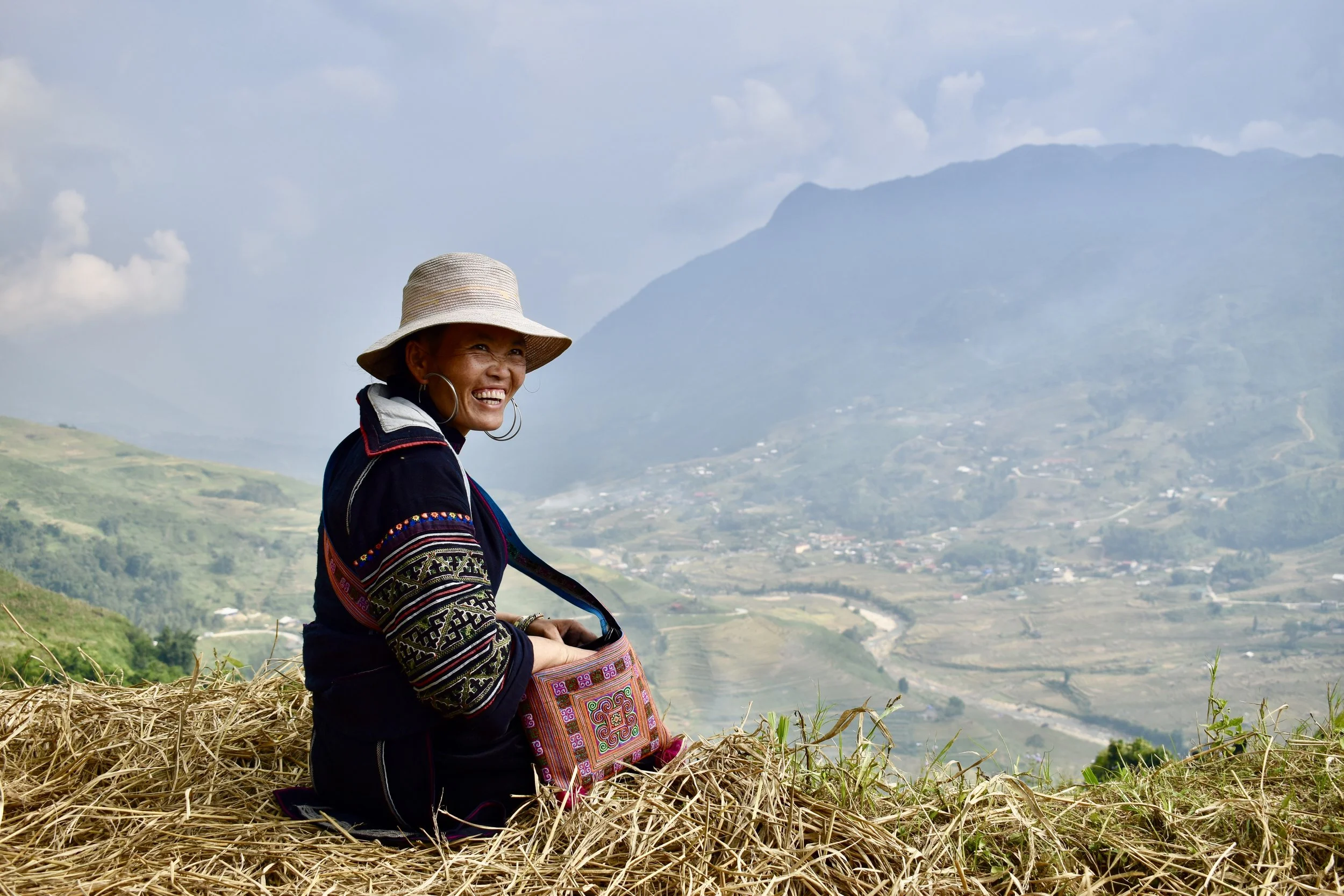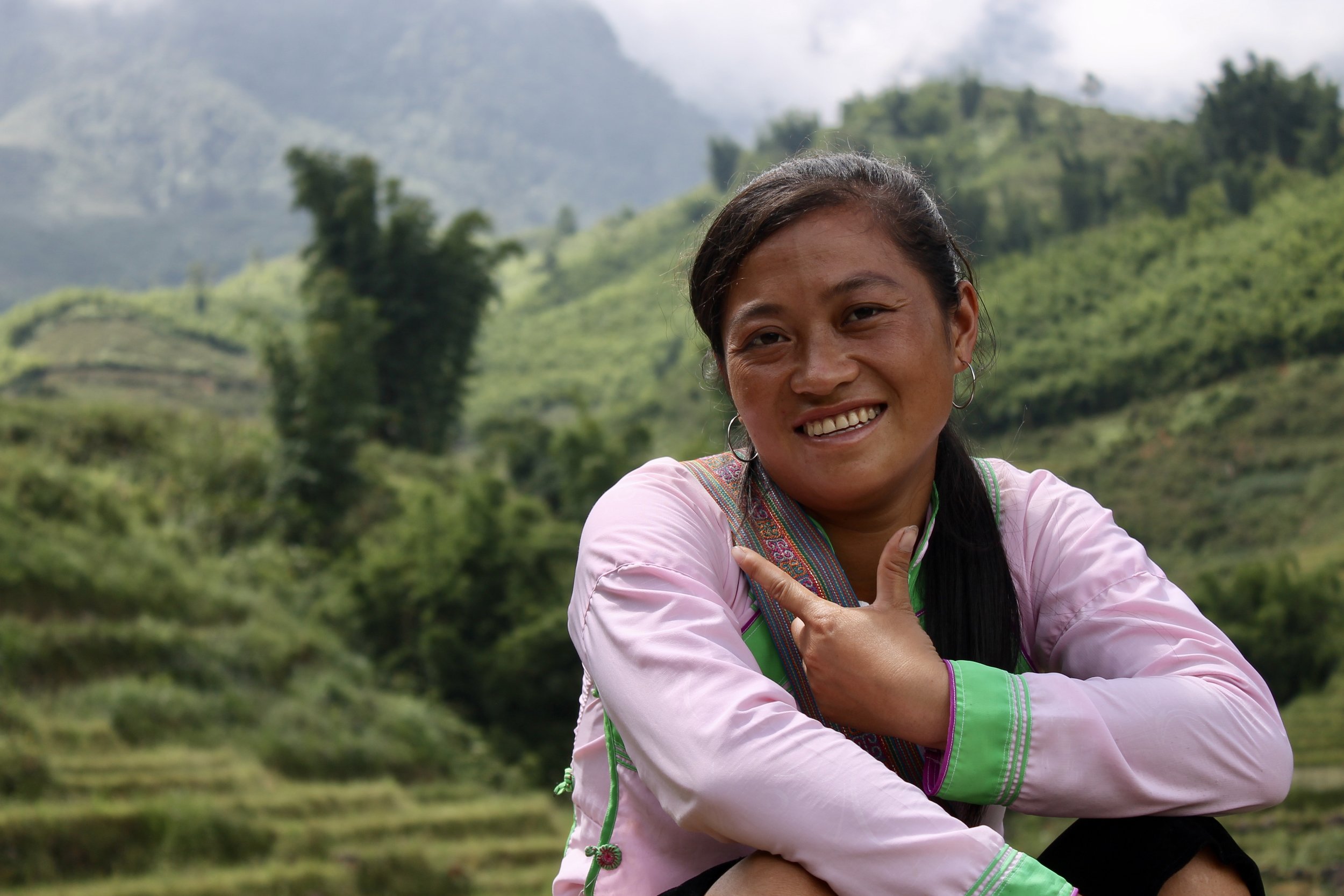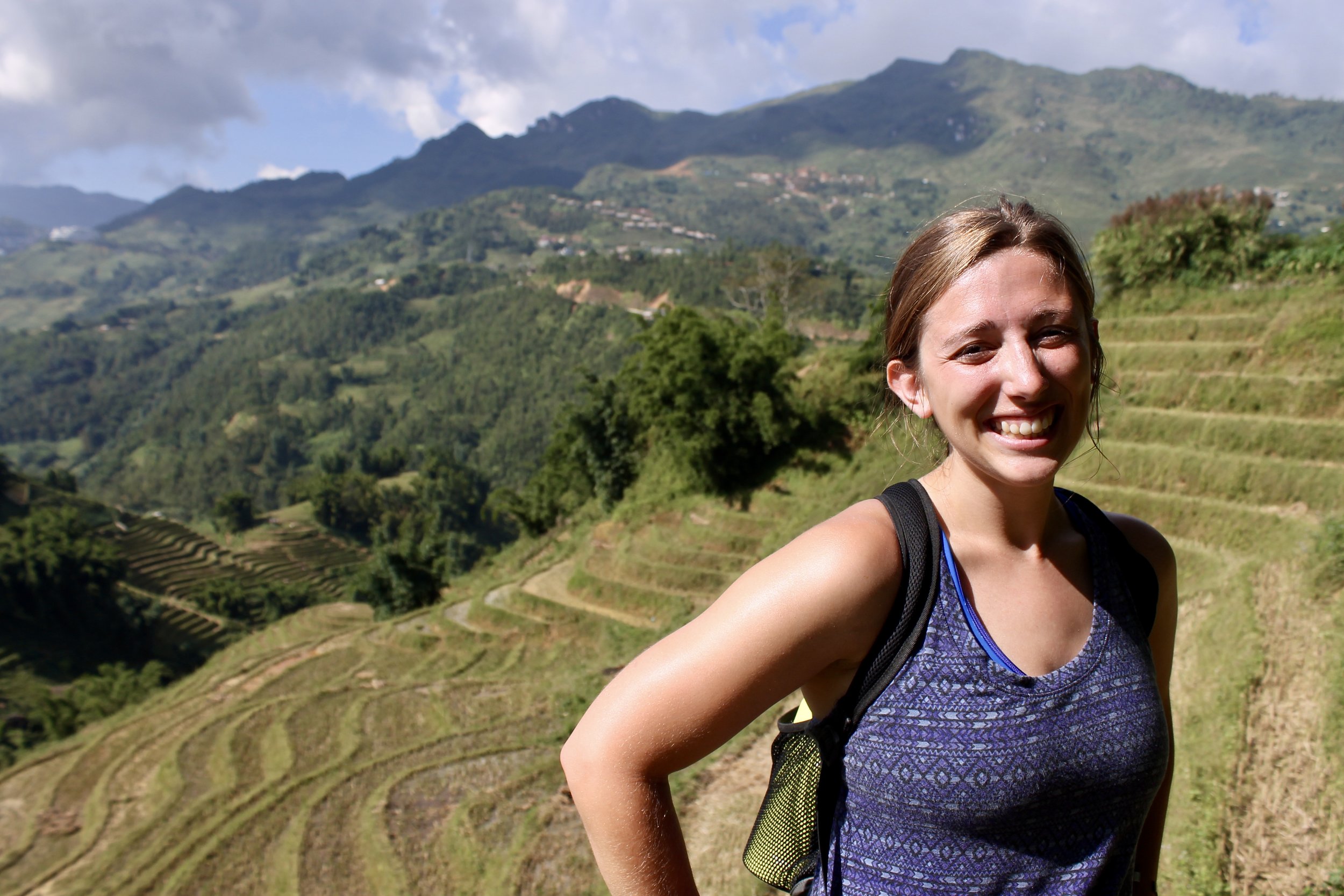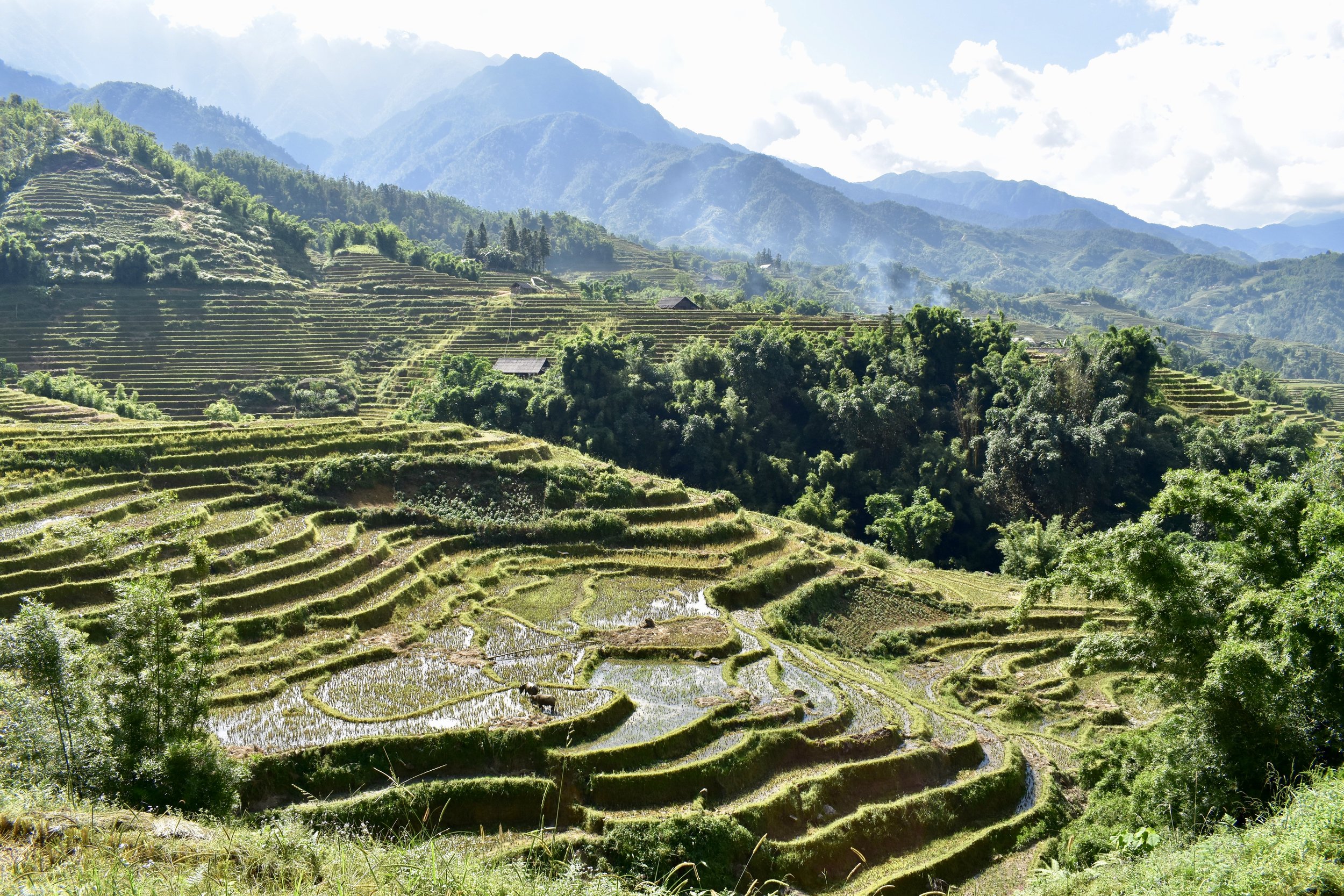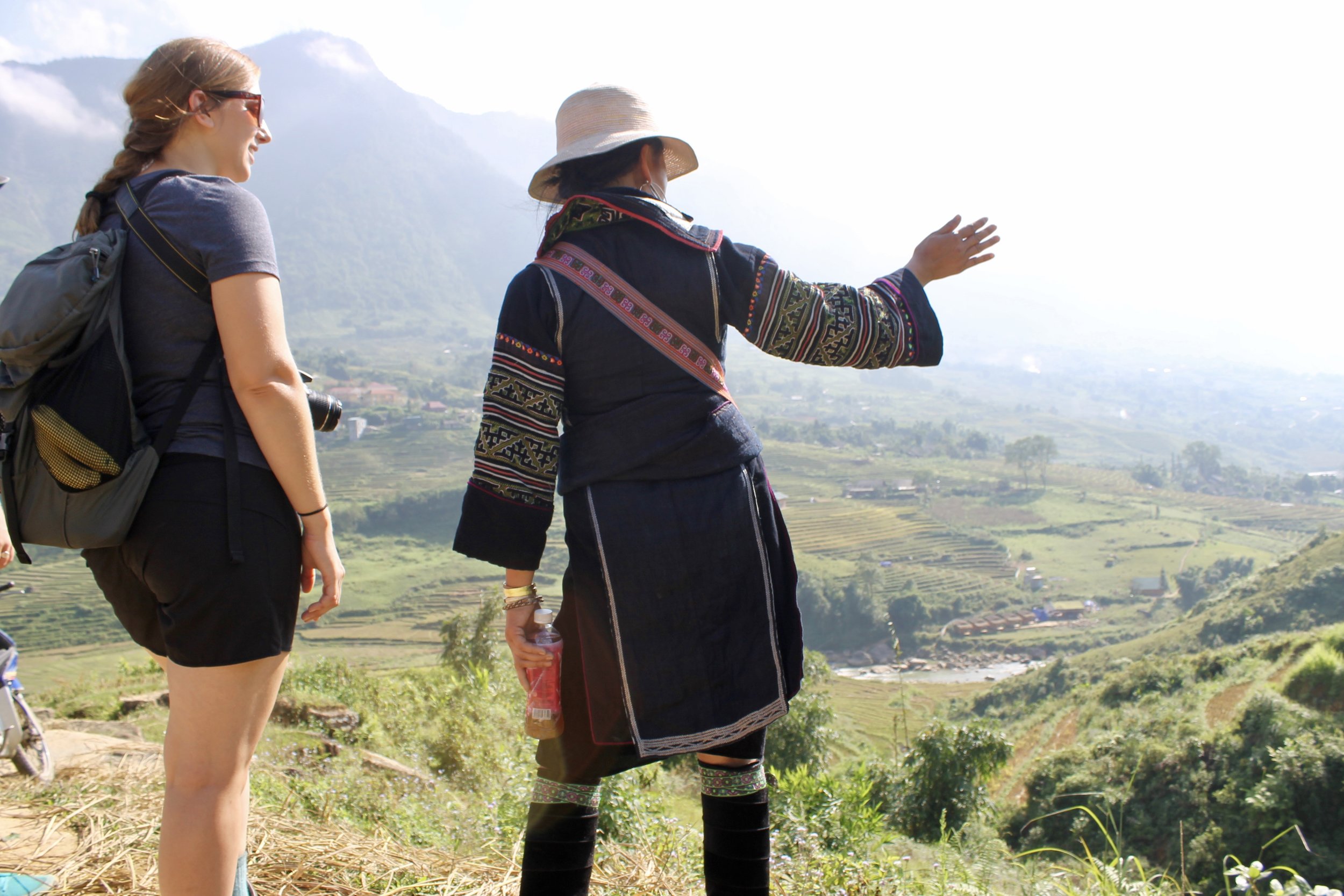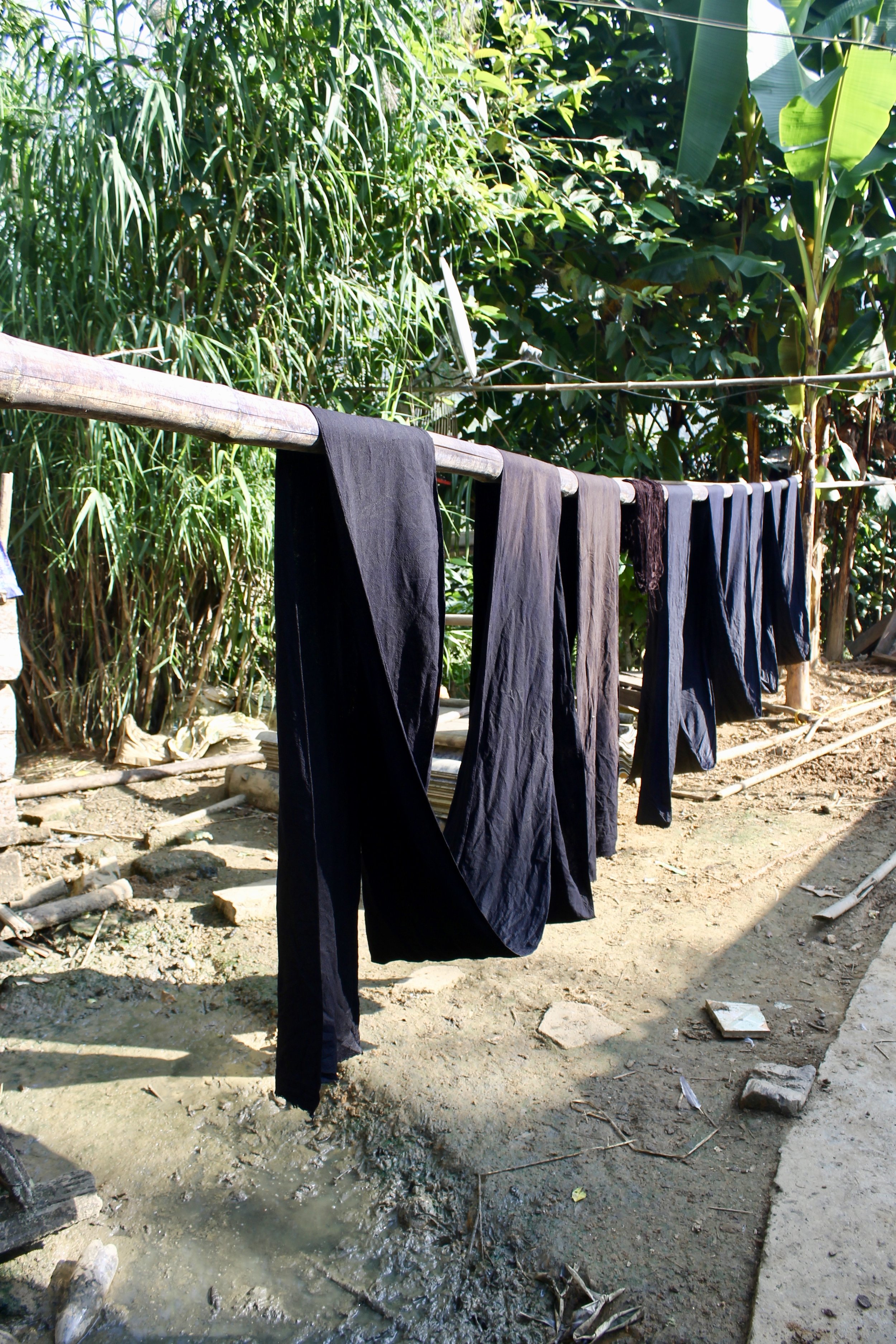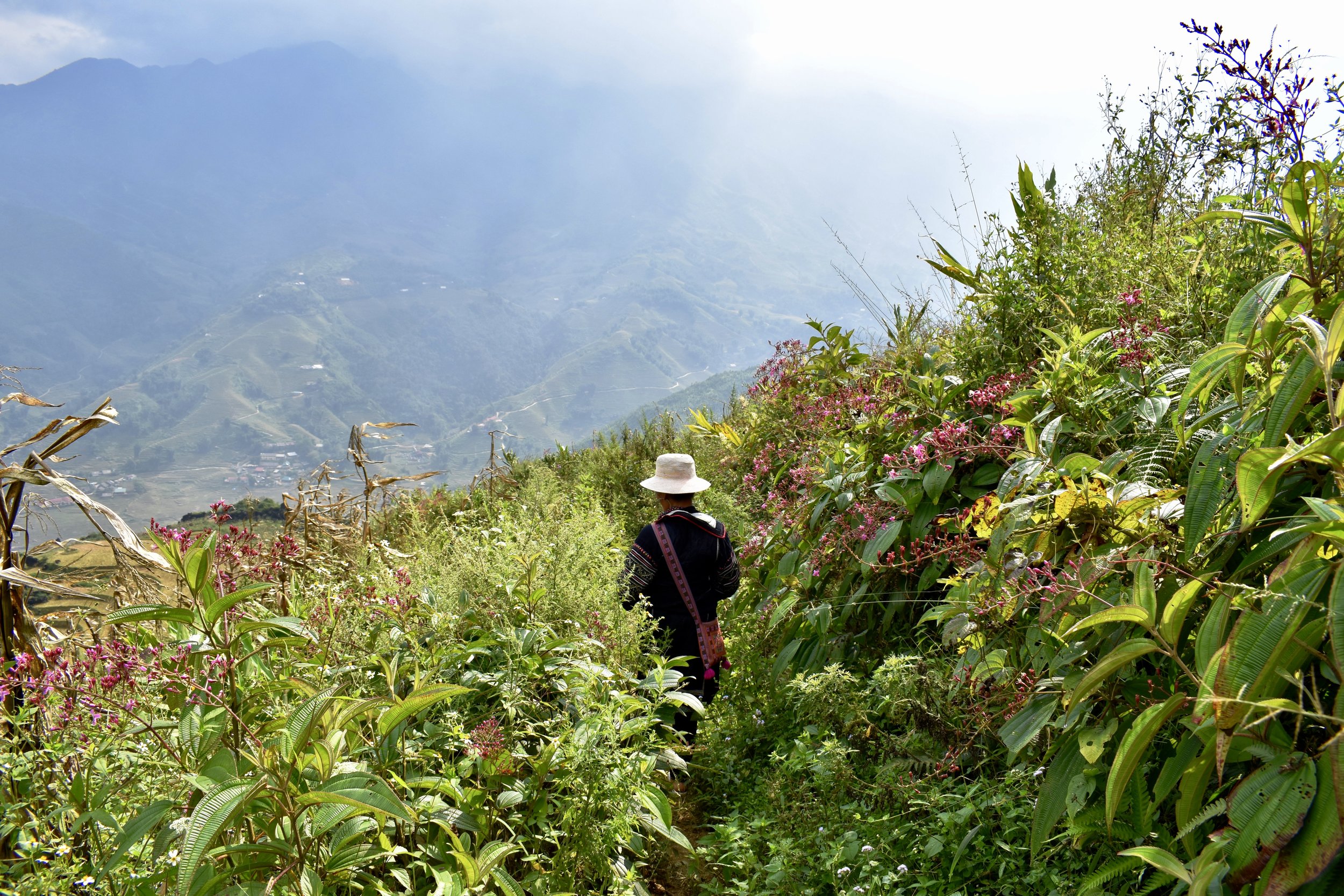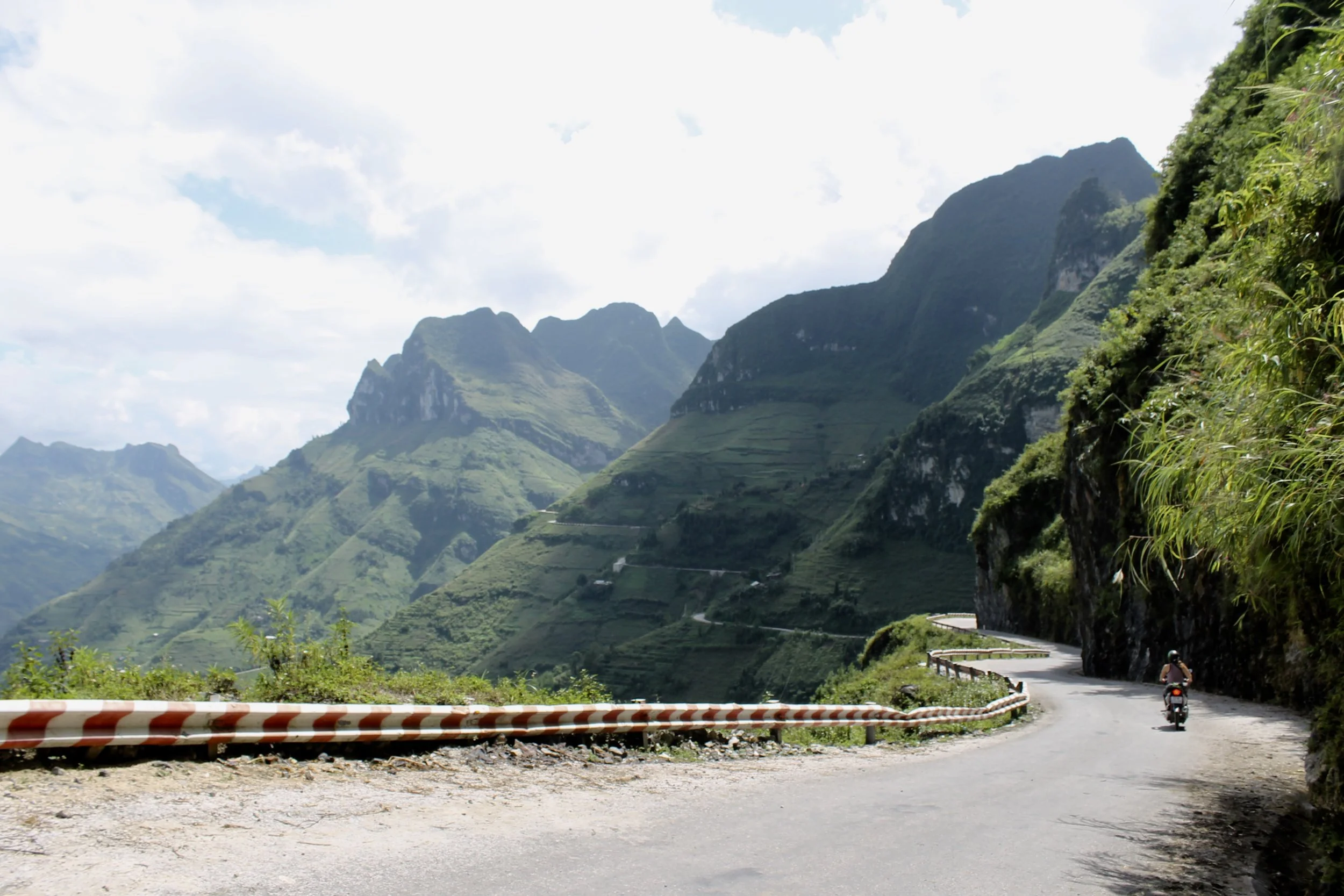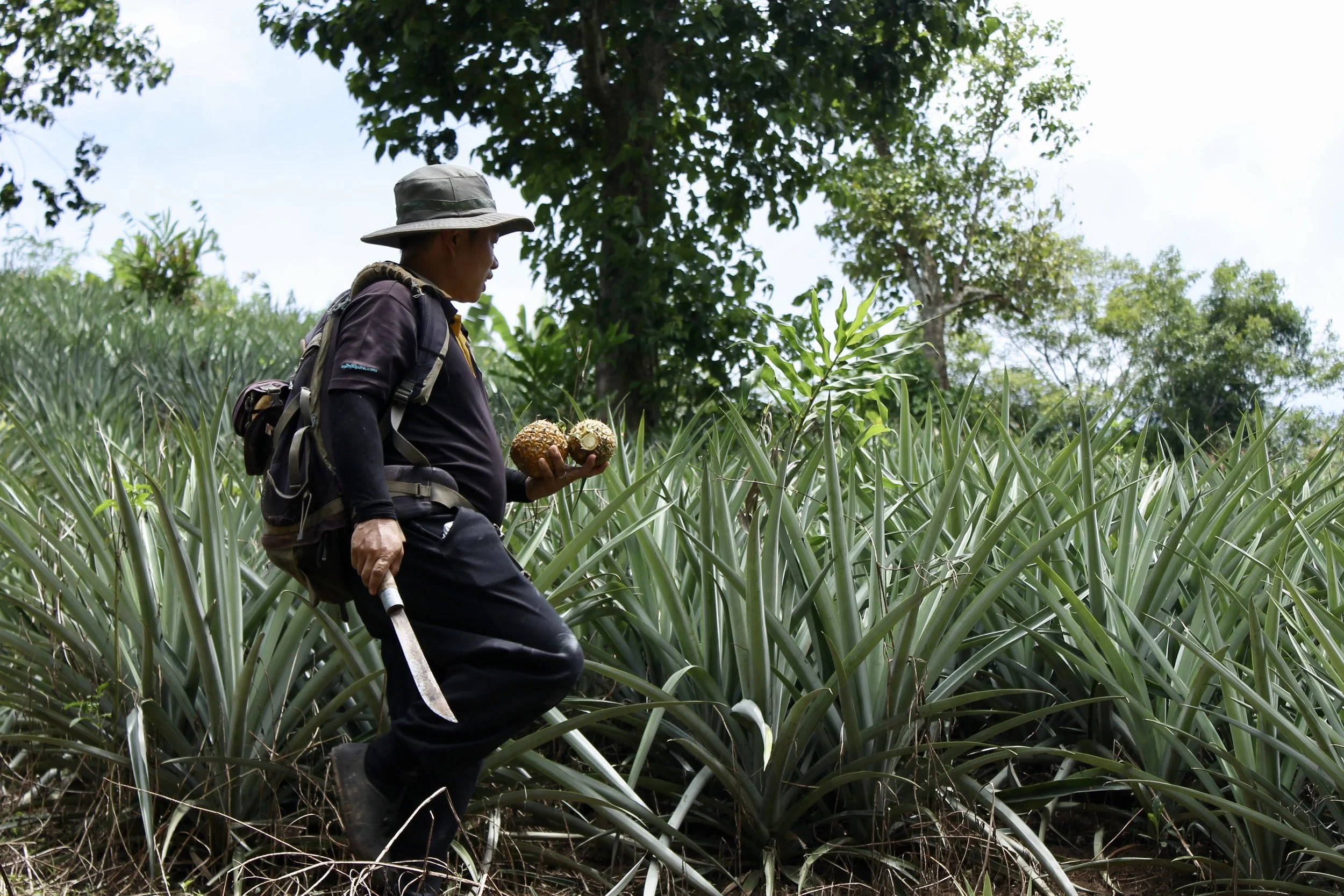Sa Pa’s Female Sherpas
Cover Photo Credit: Louise Heffernan
The mountains surrounding Sa Pa, Vietnam are renowned for their breathtaking, terraced rice paddies and distinct indigenous groups. When Louise and I visited in early October, the rice harvest neared completion. The yellowing crop, often submerged in reflective water, glowed gold under the hot sun. Summiting these agricultural shelves in the clouds felt like climbing the staircases of the gods.
Or goddesses, to be more accurate.
Women dominate Sa Pa and its surrounding villages, like in Ta Van where we stayed. They run the homestays. They guide treks. They create and sell handicrafts. They complete 90% of the planting, sowing, and reaping. Though many are the primary breadwinners for the families and work away from home for weeks at a time, others champion the childrearing and homemaking. In the villages, that includes tasks like making kids’ clothes.
Girls. They rule the world in Sa Pa.
Louise and I spent our time in Sa Pa trekking from village to village. Xi (pronounced See) led us on a scenic six-hour trek on day one, and Zho (pronounced Jo) upped the ante on day two with a 10-hour trek down into the river valley, up a mountain, and back down to Ta Van. Other women joined us from time to time on our journey, but Xi and Zho served as our guides to the area and its hill tribe culture. Clad in plastic sandals and carrying less than a liter of water, they effortlessly move through mud and up mountains day after day, year after year.
To me, they are Sa Pa’s superheroes.
Xi
Xi is younger than me. She leads hours-long treks nearly every day. Her two infant children and husband live in her Giay (pronounced “Zay”) village, which is a two-hour drive away from Sa Pa. Xi will work for weeks at time without seeing her family, bringing home the family’s income when she does.
As a teenager, Xi met her future husband at the big New Year celebration when all the mountain villages convene in celebration. Now he stays at home with their children, and her kids love having him around.
“My kids don’t really like me,” Xi said to us over lunch, her English perfected from guiding Westerners for years. “They don’t know me. If my husband leaves, my children are very sad. They don’t care when I’m gone.”
This statement was matter-of-fact, and only tinged with sadness and longing. But I can’t tell if it was longing for more balance or for a different life all together.
When we told Xi we had come from Ha Long Bay, she seemed interested in the far off place in her own country. She’s never left Sa Pa, but has probably walked enough mountain miles to get all the way to the Gulf of Tonkin.
Xi’s most animated discussion with us stemmed from her experience leading a trek for a “Lady Boy” and her partner from Bangkok. No one in Xi’s community had interacted with an obvious transgender person before, and it seemed everything from their hotel stay to their hike was a spectacle. Xi’s commentary was less judgmental and more incredulous. For her, the trek was an anomaly—almost a highlight in her career.
Because as a trekking guide, you go up and down, but it’s really all the same.
Zho
Zho is Xi’s sister-in-law, but she is part of the Black Hmong tribe. As a 40-something mother and long-time trekking guide, Zho radiated contentedness. Her laugh tickled me as much as it crinkled her nose. Sure-footed in floppy sandals, Zho actually held my hand descending the mountain in the rain as my hiking shoes slid out from under me.
Zho also met her husband during Sa Pa’s New Year celebration, but she was quick to tell us that she dated many men before him. After hearing about Xi’s quick marriage to the only man she had dated, we wondered how marriage and dating works in Sa Pa. Zho said that for her it involved men from all different hill tribes trekking to her village to simply talk with her. She had boyfriends, and had been engaged. Her current husband was actually married, but he got divorced to marry Zho. Apparently, the match was quite the scandal.
Zho seems pleased with her partnership. They both work, and they both care for their children. He makes her laugh her adorable laugh.
Zho’s kids go to school, but Zho didn’t have the same privilege. We learned later that she is illiterate. I wonder how she runs her trekking business or navigates the health care system. She had been coming off an illness when we met her, adding to her mystique. I felt perfectly healthy going into the 10-hour trek, but I struggled to keep up with Zho.
How does she do it?
Of course, I ask this question about a lot of women in my life. I think the answer has something to do with love and grit.
By Mel Grau

